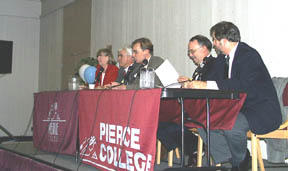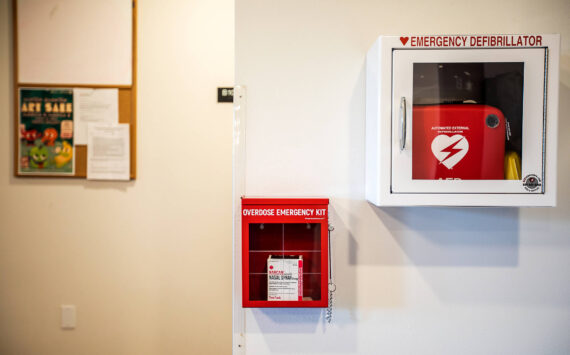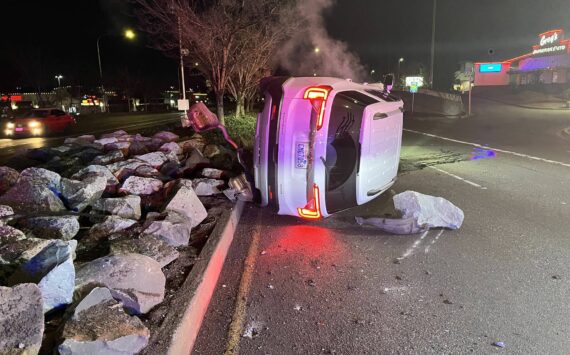Rain and blustery winds didnt stop concerned citizens from showing up at Pierce College in Lakewood last night to hear their representatives address Washington states budget woes.
Reps. Gigi Talcott and Mike Carrell, both Republicans representing the 28th District, and Reps. Steve Conway and Steve Kirby, both Democrats representing the 29th District, participated in the legislative forum, Budget Dilemma 2003: The $2.5 Billion Question.
Budget forecasters predict at least a $2.5 billion shortfall in the 2003-2005 budget, unless revenues are increased, programs are cut or both.
The free event, which was sponsored by the Associated Student Body of Pierce College Fort Steilacoom, provided the representatives with a chance to air their budget balancing strategies for the upcoming legislative session and answer questions from the audience.
Now that youre not running for anything anymore, we get to put you on the spot, said event moderator Dale Stowell, director of college relations, referring to the Nov. 5 general election.
Stowell described the the states budget dilemma as a perfect storm of budgetary challenges.
State law requires a balanced budget, he added.
Boiling the problem down to its simplest terms, Kirby said, The demand for state services exceeds the money coming in.
Kirby couldnt say exactly what would occur with the state budget in the future, noting it was uncertain what would happen in the next legislative session.
This process were about to go through is fraught with problems, he said. Its going to be like a big ol game of musical chairs – not everybody is going to get to sit down.
Talcott said the Legislature was going to have to prioritize and reign in government spending.
We are going to spend $22 billion of your dollars, she said.
Talcott pointed to tort reform, the rising costs of education programs and collective bargaining agreements as things that affect state spending.
Of particular concern to her were rising health care costs.
We are not going to be able to maintain and subsidize health care costs, Talcott.
According to her, at the current rate of increase, by 2018 all $22 billion of the state budget would have to be spent on health care.
Government cant provide such services as efficiently as the private sector, she said.
The No. 1 problem in Washington state is an economy that is in the tank, Carrell said. We must restore the business climate in this state, so that companies like Boeing dont flee.
Balancing the state budget, he said, comes down to a question of must do versus like to do.
We are going to have to make some awfully hard decisions, he said.
Conway said the state has been hit by two parallel events: the Sept. 11, 2001 terrorist attacks and an overall economic decline.
The states revenue stream – sales taxes, state property taxes, B&O taxes – were all hit hard by the terrorist strikes, Conway pointed out.
So, these are unusual circumstances, he said.
Since 1993, $3.7 billion in tax cuts have been enacted in the state, Conway said, adding it was important to provide a positive climate for businesses.
They (businesses) are the builders of our community, he said.
There were, of course, disagreements on the details of how to balance the state budget, but overall, participants agreed they would need to prioritize state spending.
All said they were not looking to raise taxes – including community college tuition – and were in favor of improving the states business climate in order to attract more businesses and jobs to the state.
Its going to take bipartisanship to solve this problem, Conway said.
The next session of the Legislature convenes on Jan. 13, 2003.





